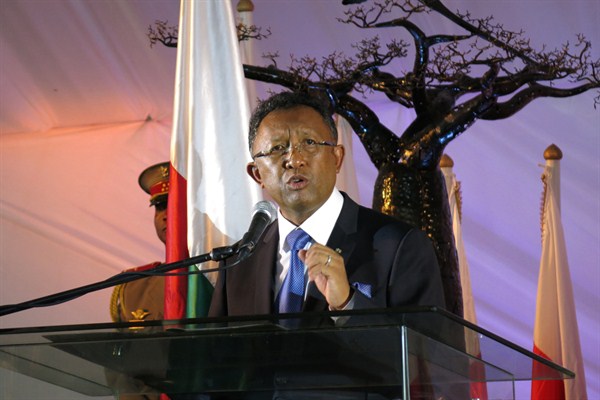The election of Hery Rajaonarimampianina as president of Madagascar in December 2013 brought with it the prospect of political stability after five years of crisis marked by a military coup in 2009. It didn’t last. On May 26, the National Assembly voted to impeach Rajaonarimampianina for alleged constitutional violations, including threatening to dissolve the assembly and mixing religion and politics in a country where half the population isn’t Christian.
The 121 members of Parliament who voted for impeachment included normally bitter rivals, and the vote total was well in excess of the constitutionally required two-thirds of the assembly’s 151 members. That seemingly substantiates the doubts of the many skeptics who questioned Rajaonarimampianina’s capacity to fix Madagascar’s dysfunctional politics. His fate as president now lies with the High Constitutional Court, which might be sympathetic to his case, since he has appointed three of its nine judges. Ostensibly, he also has the support of the armed forces. The defense minister, Gen. Dominique Rakotozafy, warned Madagascar’s fractious political class to accept the decision of the court and “to refrain from any attempt to lead the security forces into actions contrary to their missions.”
When he took office, Rajaonarimampianina inherited a country demoralized by five years of unconstitutional rule under Andry Rajoelina. In 2009, with the support of sections of the armed forces, Rajoelina seized the presidency from Marc Ravalomanana, his democratically elected predecessor and political rival. The international community largely did not recognize Rajoelina’s regime, subjecting Madagascar to political and economic sanctions. These included Madagascar’s suspension from the United States’ Africa Growth and Opportunity Act (AGOA), leading to the collapse of a previously flourishing textile industry and the faltering of free market reforms instigated by Ravalomanana.

